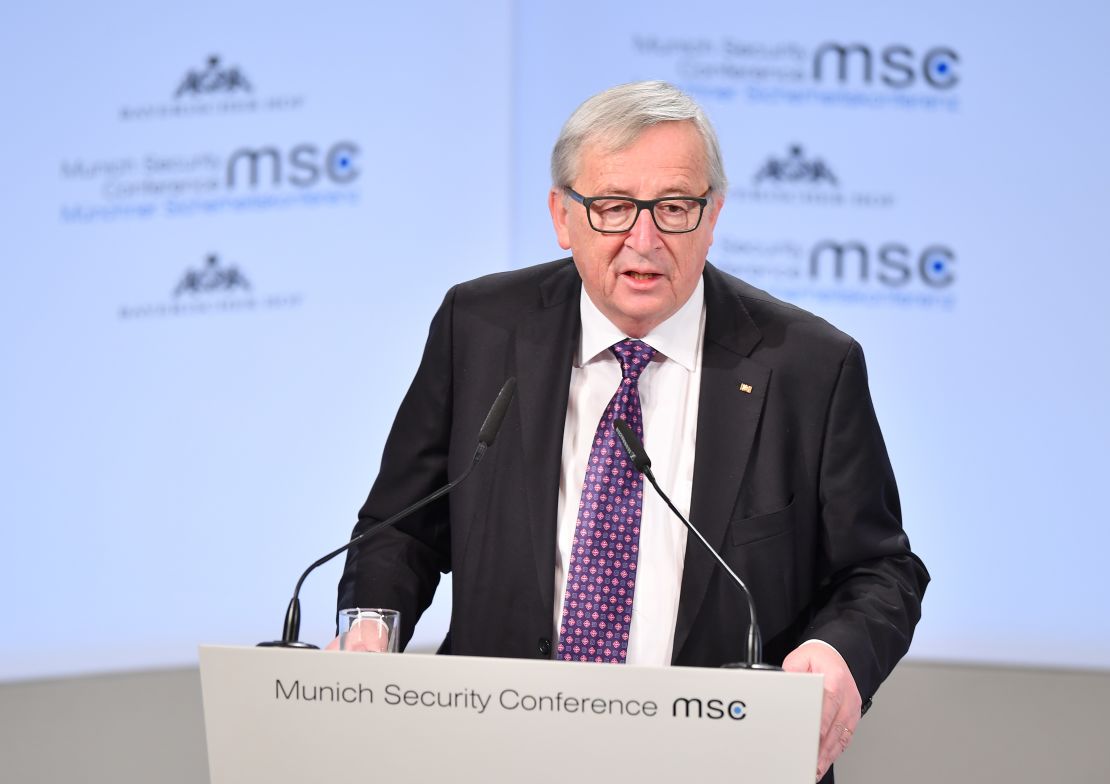UK Prime Minister Theresa May warned Saturday that “ideology” should not get in the way as she called for a new security treaty to be agreed between Britain and the European Union after Brexit.
In a speech at the Munich Security Conference in Germany, May said Britain wanted to continue vital cooperation on security with its European partners after it leaves the EU in March 2019 through a “deep and special partnership.”
But she warned that “rigid institutional restrictions or deep-seated ideology” should not put the security of UK citizens at risk.
“We must do whatever is most practical and pragmatic in ensuring our collective security,” she said.
May recalled the terror attacks that killed dozens in London, Manchester, England, and other European cities last year as she urged EU leaders to continue working together with Britain to meet the evolving threats posed by extremist groups.
“Those who threaten our security would like nothing more than to see us fractured. They would like nothing more than to see us put debates about mechanisms and means ahead of doing what’s most practical and effective in keeping our people safe,” she said.
“So let the message ring out loud and clear today: We will not let that happen. We will together protect and project our values in the world. And we will keep our people safe now and in the years to come.”
Britain currently cooperates with its European partners on security through intelligence sharing and its membership in the European police agency, Europol, and the European Arrest Warrant system.
In an important concession, May said Britain would continue to respect the remit of the European Court of Justice when participating in EU agencies.
She previously insisted that Britain would pull out of the ECJ, a position Brexit supporters in her own party insist she maintains.

Addressing the conference after May, European Commission President Jean-Claude Juncker said the “security bridge” between Britain and the EU would be maintained and was still needed.
“However, you cannot mix up this question with other questions that are important in the context with Brexit,” Juncker said.
“You have to look at them individually. And you have to answer question by question, matter by matter. But I do not want to mix up security policy considerations with other considerations.”
In her speech, May said a new treaty must preserve current operational capabilities but also be respectful of the UK’s and the EU’s separate and sovereign legal systems.
It should also include a form of independent dispute resolution across all areas of future partnership, May said.
On the matter of data protection, the UK will “align” with the EU framework, but the UK will still have its own, separate, customized data protection plan, she said.
“I recognize there is no existing security agreement between the EU and a third country that captures the full depth and breadth of our existing relationship,” May said.
“But there is precedent for comprehensive, strategic relationships between the EU and third countries in other fields, such as trade. And there is no legal or operational reason why such an agreement could not be reached in the area of internal security.”
The EU and UK are set to embark on negotiations on the terms of a transition period after Britain’s departure before moving onto future trade and security relations.
CNN’s Nic Robertson and Simon Cullen contributed to this report.



